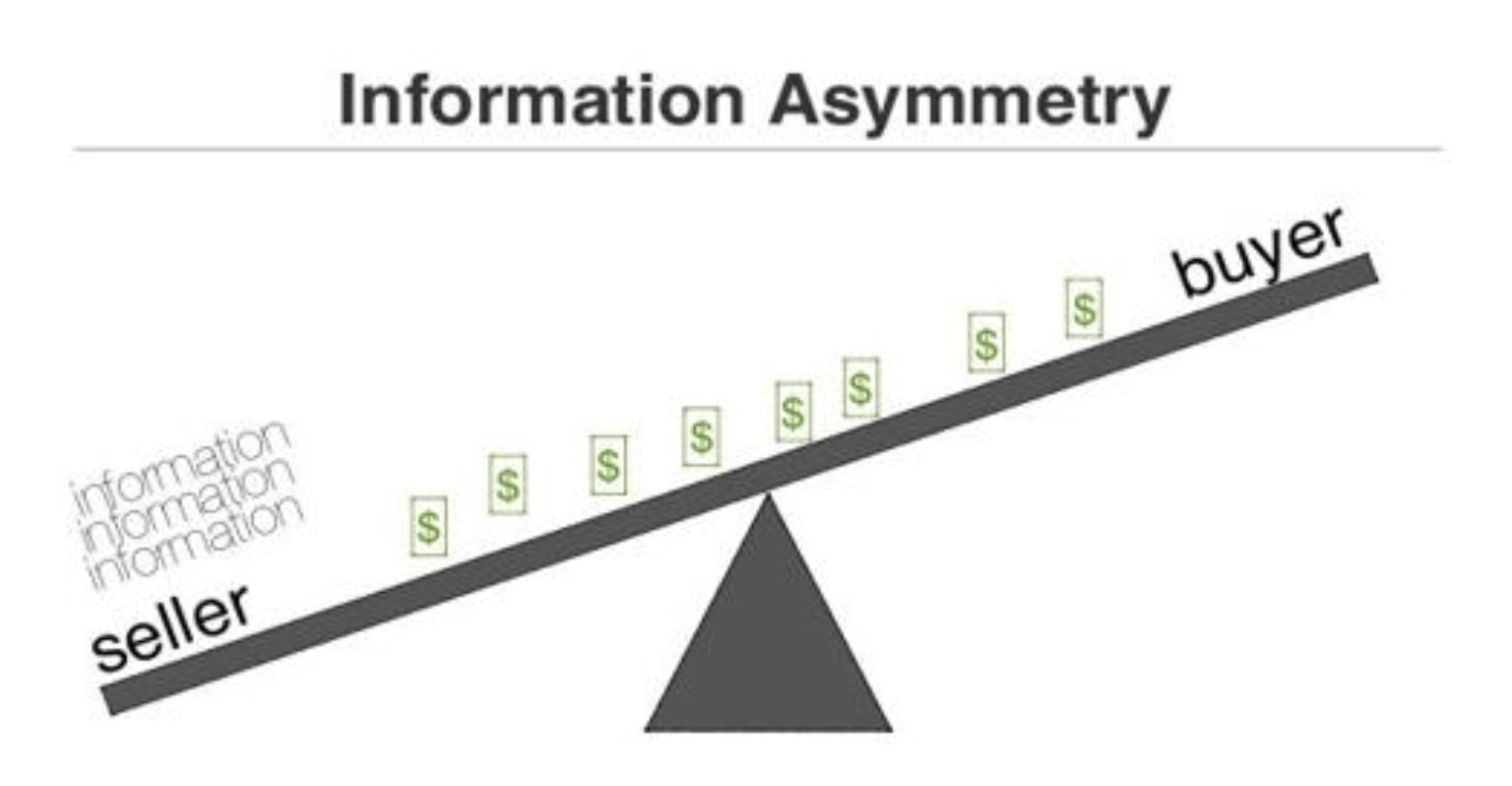There’s an economic principle called information asymmetry.
It occurs when one party in a transaction has better information than the other.
And leads to someone saying, “had I known X, I would’ve done Y instead.”
You see this concept play out all the time.
A brand charges higher prices on their site than on Amazon
A car seller doesn’t mention the little quirks that a buyer wouldn’t know to ask
A company offers a high commission role without saying there’s a lead problem
The omission of information affects the other person’s decisions.
Had they known all the details, they might have chosen differently.
Which brings me to the idea behind today’s newsletter:
When you’re interviewing for your next client project or job…
You have to know what to ask.
Especially when equity is on the table.
This is not to say that companies deliberately withhold information.
This IS about peeking around corners, knowing the risks, and making informed decisions.

I was up for a director-level role at a startup.
Things were moving forward fast… until they fell apart.
CEO: “That salary range is fine with me. I’ll go ahead and draft the offer. Just need you to talk to one more person.”
Me: “Ok, great.”
*Final Interview*
CEO: “Heard the call went great. We’re going to have you meet one more person.”
After meeting three more people and drafting the start of a GTM strategy…
I could feel they were stalling. And I could see their revenue goal and ability to invest in marketing didn’t add up.
I asked a Big 4 M&A consultant for her opinion.
She advised me:
Don’t look at what they’re telling you.
Ask the questions to find out what they’re not.
She calls them the “Shark Tank” questions.
Keep these in your back pocket.
Use them to hear the unsaid, uncover red flags, and decide if the opportunity you’re considering is a good fit long-term.
🚩 What’s your run rate?
You need to know how much time is on the shot clock based on current revenue, expenses, and churn rate.
Since marketing’s function is customer acquisition, your department will often be the first to be scrutinized when things go wrong.
You need time to test different strategies and messages to find and scale winners.
Especially for early-stage startups.
There is no magic bullet to find product-market fit.
🚩 What’s your marketing budget?
If there’s no budget allocation in place for marketing, it’s a red flag.
It’s one thing if your job is to set the budget per channel or decide what to spend on vendors and tech to carry out your strategies.
However, if the company hasn’t decided what percentage of the operating budget to spend on marketing overall, there’s a larger business strategy problem.
🚩Are you looking into funding? Why or why not?
Once you know the run rate and the marketing budget, you have a clue on which channels may be the right place to pursue first.
If you have more time, you can pursue slower, more cost-effective growth channels like organic social, SEO, and referral pipelines.
If you have less time, you need money for faster acquisition channels like paid ads and partnerships.
Then there’s the labor budget to consider. In the case that revenue is down for a prolonged period, you need to know:
What are the other sources to capitalize the business?
🚩What’s Your Backup Plan If We Don’t Hit Our Goal?
As talented as you may be, you still need to play out the worst-case scenario.
Cuts are always on the table.
You want to know the options a company has to deal with financial problems before cuts are made.
What other avenues for monetization are being explored?
Are there deals or products in the pipeline that have potential?
Are there expenses that can be consolidated?
While they want to make the right hire, you want to make the right choice of where to invest your time.
It didn’t work out with that startup I mentioned earlier.
They ended up not hiring for the role at all.
The M&A consultant deduced that they couldn’t support both the salary and the investments required to reach their customer acquisition goals.
Initially, that stung. All that wasted time.
But the questions above have since helped me discern equity deals.
When considering an equity deal, you have to listen for how things are at the company.
Not as you’d like them to be.
Equity pays out at a future liquidation event.
There are no guarantees there will ever be one.
So if you’re negotiating a salary and equity split, make a decision based on your likelihood of success in that environment and what you bring to the table.
The cost of anything is the amount of life you exchange for it.
If you’re going to spend the majority of your day working on a problem…make sure you’re picking a problem you believe in solving.
Then negotiate the offer that allows you to pursue your best work.
"The cost of a thing is the amount of what I will call life which is required to be exchanged for it, immediately or in the long run."
Have You Used AI to Analyze Your Interactions Yet?
The consultant who gave me these questions also encouraged me to use ChatGPT to analyze why the startup axed the role altogether after so many interviews.
The hunch she had earlier about the role being to risky for the startup was also what came back in the chat.
Next time an interaction leaves you confused, be it a deal or something else, run it through ChatGPT to get an objective viewpoint.
It’s amazing how effective it is to get a read on EQ.
-Annabel
